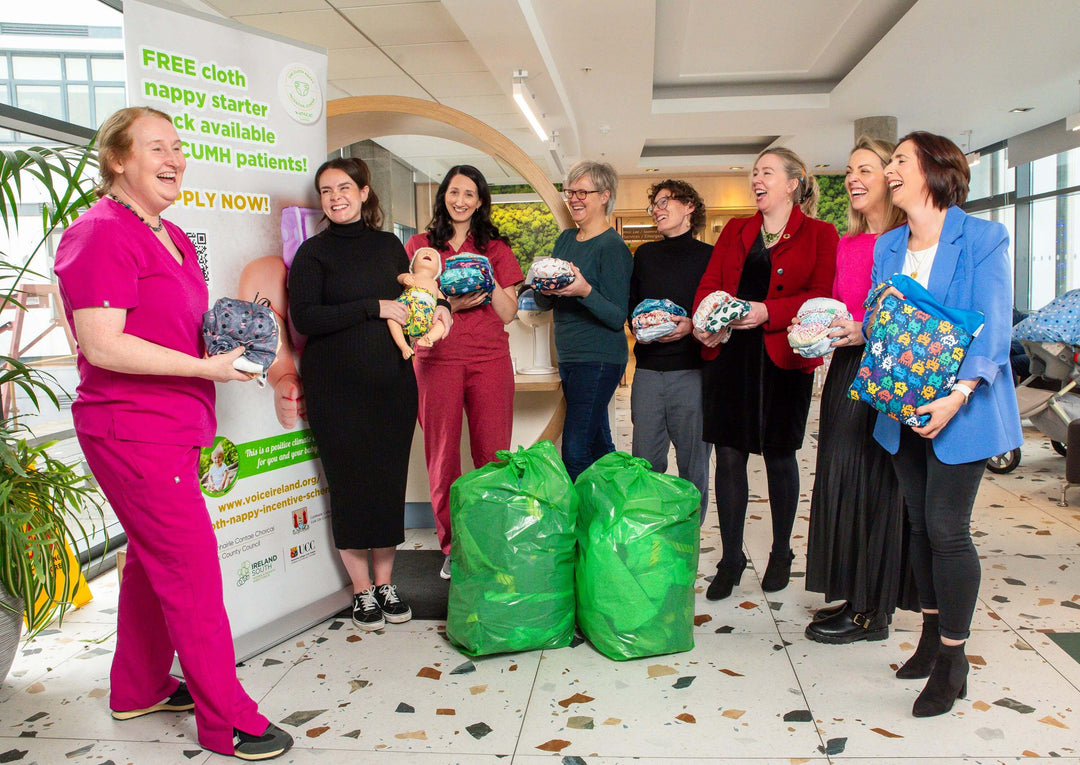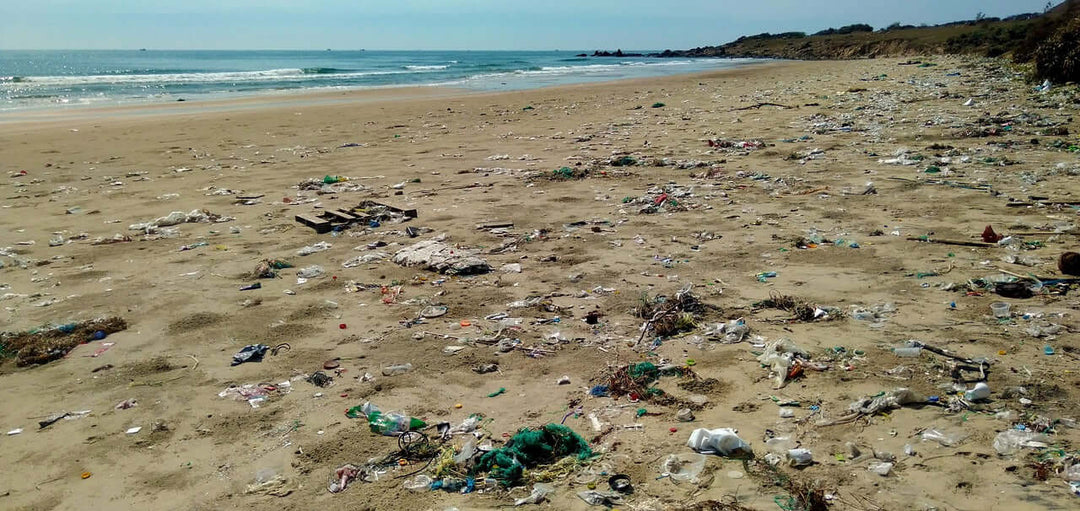How to Be More Sustainable: 44 tips
Sustainable living is a simple and practical philosophy that aims to reduce personal and societal excess waste by making positive changes, also known as eco-swaps, which help to counteract climate change and other negative environmental concerns.
What is a Sustainable Lifestyle?
Sustainable living encourages people to minimize their use of Earth’s resources and reduce the damage of human and environmental interactions. It is a series of simple choices with nature in mind; from ditching single use plastics to reducing energy consumption, from using less water to reducing household waste. Even starting with a small eco-swap can help your household become more sustainable.
Is Being Eco-Friendly Worth It, and Can I Help to Reduce Greenhouse Gas Emissions?
Absolutely. Those who practice an eco-friendly lifestyle see instant and continued benefits. There are just so many examples to name them all! To be considerate of the world we inhabit for ourselves and for our children requires a series of small changes that add up.
Exploring a city? Take a snack to reduce food waste and cost, and bring a reusable, refillable water bottle to reduce plastic consumption.
Buying a computer? Consider refurbished. Same quality, cheaper price.
The reduction of greenhouse gas emissions may at first seem like something only corporations can do, but below we list many choices you have for choosing renewable energy sources, choosing sustainable food sources, decreasing energy consumption, and consuming less water.

Ways to Live More Sustainably
Sustainable Living at Home
1. Use LED lighting or CFL bulbs instead of older incandescent light sources as these last longer and consume less electricity. Always remember to turn off when done, or invest in timers for when you’re away if you wish to have lights on for security.
2. Feeling chilly? Put on an extra layer of clothing rather than reaching for the thermostat. Feel warm? Take off a layer of clothing or open a window rather than turning on a fan or using a cooler.
3. Reading books and magazines are a wonderful way to pass the time without directly increasing your carbon footprint. And if you need more light while relaxing and reading, open your blinds to let in as much natural light before reaching to turn on a light.
4. We do not need to explain just how vital trees are for our environment and for combatting the effects of climate change. Always consider the impact of using paper, and take steps to reduce the amount of paper in your home that is unnecessary. A 'No Junk Mail’ sign is a superb start to this.
5. Leaving a room? Turn off your lights. Consciously do this and it becomes a habit.
6. Always take the opportunity to hang your wet clothes on a washing line or a drying line. Whilst washing machines and dryers are undoubtedly becoming more efficient, the most eco-friendly and cheapest option remains the natural air and sunlight.
7. Always take a shower instead of a bath when possible.
8. Take the above one step further if you wish and consider timing your showers as an effort to further reduce water usage. And consider investing in a shower timers as a water saving feature.
9. If your garden size permits, or if you have access to a local community garden, consider growing your own fruits, herbs, and vegetables. Not only is it a fun pastime to have, the taste and flavour is always superior to produce purchased in a supermarket.
10. While you’re at it, should you need to fertilise, consider an organic fertiliser as a clean and natural choice rather than using pesticides.
11. Most supermarkets sell recycled toilet paper and recycled kitchen paper. They perform the exact same as you’ll be used to with the added benefit that most come in plastic-free packaging.
12. And speaking of toilets, if your pet often does their business while you’re on a walk, many pet stores now offer a plastic free option for scooping pet poo for a similar price.
Sustainable Commuting
13. Walking is free. Walking is fun. Walking is healthy. It is a wonderful first step to a more sustainable lifestyle.
14. And so is biking, with most cities offering bikes to hire as an extremely cheap, safe, and efficient option to reduce your carbon footprint. A bicycle is also an extremely affordable and durable investment should you wish to use one as your primary form of transport.
15. Another option is to use public transport. Public transportation is reliable, cheap, and has the added benefit of allowing you to relax and read or listen to music while you commute.
16. If you need a new vehicle, there are now many wonderful renewable energy options, such as hybrid cars or even better, battery powered cars that use absolutely no fossil fuels to power them. Battery technology is making dramatic advancements yearly, and these vehicles are highly energy efficient. And as more are sold, and supply chain costs reduce, prices too are slowly coming down.
Sustainable Fashion and Clothing
17. When it comes to clothing, this is perhaps the easiest, most eco friendly way to improve your sustainable lifestyle. One of the great ways to make a difference is to invest in better quality items that last longer. There is a trend for a reason; slow fashion is better for the planet, better for workers, and better for you than fast fashion.
18. Support clothing brands that are ethical and environmentally conscious. Organic cotton is a prime example of a sustainable fabric as it provides material that requires less water, no chemicals, and provides a stable, well looked after work environment.
19. Look for brands that go above and beyond; brands that are members of 1% For the Planet and Climate Neutral act as they claim; they care, and you can trust them.
20. Buy second hand clothes and support local charity shops if you can. A bargain can always be found.
21. Buy only what you need. A sale is great but only if it is something that will add to your quality of life or is something you need.
22. Shop with retailers who also offer support, be it prior to a sale or long after a sale. If a retailer offers advice for free when you ask them, always consider giving them your business when you choose to buy.

Sustainable Shopping
23. Always bring your own bags when you go grocery shopping. Not only does this reduce the cost of having to buy plastic bags in many countries, but this significantly reduces the amount of plastic bags that are consumed, and thus need to be incinerated or recycled.
24. Support local by shopping local. Buy local produce from any convenience stores or local farmers markets.
25. Many fruits are now sold with plastic packaging. Opt against this by buying fruit as is, and bring your own bags. If you must, choose compostable bags over plastic bags for wrapping them. If there are fair trade options available, these often taste better too!
26. If you have the choice, opt instead for reusable packaging and sustainable packaging over plastic wrapped products.
27. Don’t buy bottled water! Tap water is nearly always perfectly safe to use.
28. Shop at large supermarkets for a weekly shop. Not only do you save on transport costs, you can plan your week in advance, buy only what you need, and waste less. Every step that helps you live sustainably is worth taking.
Sustainable Technology
29. Research what you require. Buy what you need. This way the technology you invest in will last far longer than that which is bought on a whim.
30. Instead of using paper, go paperless. Go digital. Communicate via email rather than letter as this will help reduce the need for paper.
31. Planning a wedding? Send out the invitations digitally. Not only can do it faster, many service will allow you to see when they were opened!
32. Need a receipt? Ask for them to be emailed to you to help reduce clutter and paper waste. And you’ll never lose them!
33. Need to take notes? Use your phone instead of paper as you will always have it with you, and these notes can be instantly searched and are incredibly easy to edit.
34. If you travel often, or indeed if you read daily, consider using a tablet such as an iPad or your phone for reading books. A Kindle is a relatively cheap investment and can hold thousands of books, many of which can be downloaded for free.
35. A great way to lead an eco friendly and sustainable lifestyle is to consume your daily and weekend papers via an app or via subscriptions. All major magazines have subscriptions, which are nearly always cheaper than receiving the physical product.
36. Consider making the switch to renewable energy sources such as solar power. Many governments will offer incentives, tax breaks, and grants to facilitate this switch. There are so many viable choices such as solar panels.
37. Consider widely available incentives to improve the energy efficiency of your home. Not only will this decrease to your reliance on natural resources, it will also reduce your monthly energy bills.
38. Most devices come with built in reliable lithium ion batteries these days. For those that don’t, consider using rechargeable batteries.
39. Consider purchasing refurbished technology such as computers. Not only do they come with the same warranties, they will save you money as well.
40. Recycle your devices whenever possible. And consider donating them to libraries, youth clubs schools, and charities. Think about family and friends too…is there anyone who would benefit from your old personal devices?

Sustainable Baby Products
41. Switch to cloth nappies. Reusable nappies are a simple, eco friendly, and cheaper way to use nappies with your baby. We have an extensive blog post on just how big the savings are, and the environmental benefits of making the switch. It just happens to be a huge plus that they’re cute!
42. Switch to cloth wipes. This is a simple, environmentally friendly, and sustainable way to live. Whilst many parents may decide reusable nappies are not for them, using reusable wipes is a simple, eco friendly swap that also saves water and waste. And you will save a lot of money too!
43. Reusable nursing pads are a simple and sustainable switch for new and nursing mums.
44. Consider durable, safe wooden teethers, toys, and rattles for your baby.
Have anymore tips? Do you do anything to live sustainably, throw away and waste less, use other renewable energy sources, or decrease water consumption? We would love to hear about your eco friendly ways to live!




